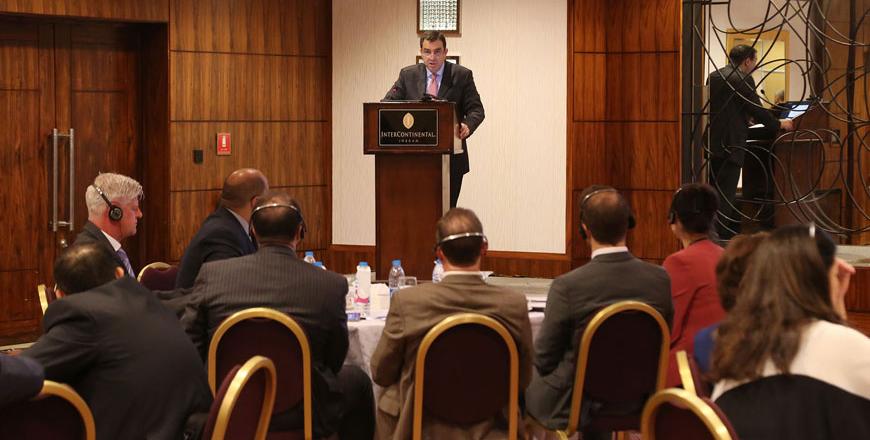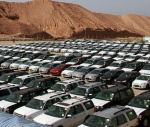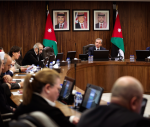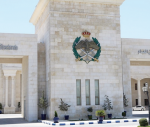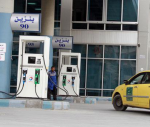You are here
Ministry, World Bank launch project to develop urban planning
By Rana Husseini - Oct 31,2017 - Last updated at Nov 01,2017
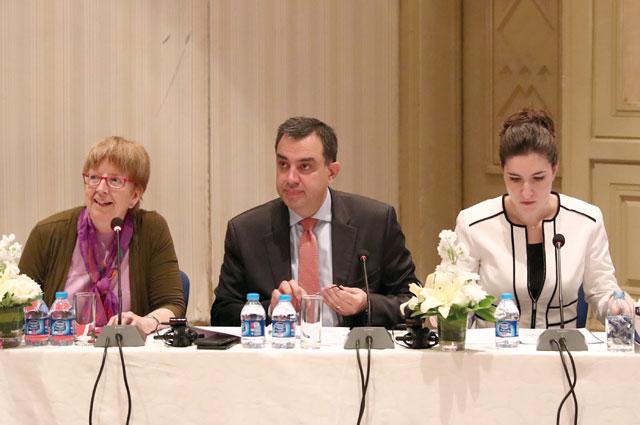
Minister of Planning and International Cooperation Imad Fakhoury attends a workshop that tackled the outcome of a project run by the Planning Ministry and the World Bank to develop municipal urban planning (Petra photo)
AMMAN — Five municipalities in Jordan are making use of a new one-year project run by the Planning and International Cooperation Ministry and the World Bank to develop their urban planning.
Minister of Planning and International Cooperation Imad Fakhoury on Tuesday acted as patron to the “first-of-its-kind” workshop that tackled the outcome of a project in the Arab world that aims Jordan to develop the capacities of five selected municipalities in the Kingdom with the help and technical assistance of the World Bank.
The project, which will be completed by the end of this year, is being implemented in Mafraq, Irbid, Rusaifa, Zarqa and the Greater Amman Municipality.
“We aim to put in place new planning tools to set the new green worth planning frameworks for these five cities,” Fakhouri told The Jordan Times.
The minister added that “this is quite critical given the challenges all cities in Jordan are mostly facing because they do not have proper long-term plans for their urban development since we had a sudden increase in population”.
Fakhoury was referring to the influx of Syrian refugees in Jordan, which he said “increased the population by 14 per cent with a ratio of refugees to Jordanians by 21 per cent”.
“That added additional pressure on the infrastructure, the land use and the challenges that even preceded the places with sprawl, unorganised and unplanned growth in these municipalities,” Fakhoury added.
He pointed out that for the first time in the Arab region, “we are able to put in place the new green scenario urban planning tools to assist the municipalities to conduct extensive work to put future plans on different scenarios for the growth of their cities.”
“We are at the central level supporting these local efforts given the reform path that we are implementing following the recent municipal elections so that we support the local capacities to better plan their cities, which is in line with our government policy for creating more local sustainable development at the level of the cities and governorates,” the minister added.
“The plan is for these cities to develop, and the recommendations coming out of today’s meeting will be used to benefit other municipalities in the Kingdom,” Fakhoury said.
Whatever comes out of these recommendations, he added, “will help us take the necessary measure at the level of the Cabinet to implement whatever comes out of this meeting”.
Tania Meyer, the Resident Representative of the World Bank in Jordan, described the workshop as being critical because “it tackles one of the biggest challenges Jordan has faced in recent years, which is rapid population growth”.
Much of this population growth, according to Meyer, has been focused on a few urban areas, including the five targeted municipalities.
“Altogether, these cities are home to well over half of Jordan’s total population,” she added.
“These cities are governorate centres, which means they’re very important within the decentralisation framework as urban centres to upscale smaller communities around them,” Meyer stated.
She said that rapid population growth results in rapid urban growth and “once a city is built, it is very hard to change patterns of urban spatial structure.”
“The opportunity to change is greatest before more permanent structures such as roads, infrastructure and houses are built,” Meyer stressed.
Related Articles
AMMAN — The World Bank (WB) has endorsed the 2017-2022 country partnership framework, offering up to $1.4 billion of financing to Jordan for
AMMAN — The Planning Ministry and the World Bank on Tuesday presented a study on “Urban Growth Scenarios for 2030” for five cities across th
AMMAN — Jordan and the US on Sunday discussed Washington’s economic assistance programme for the Kingdom.At a meeting with Eric Meyer, deput


